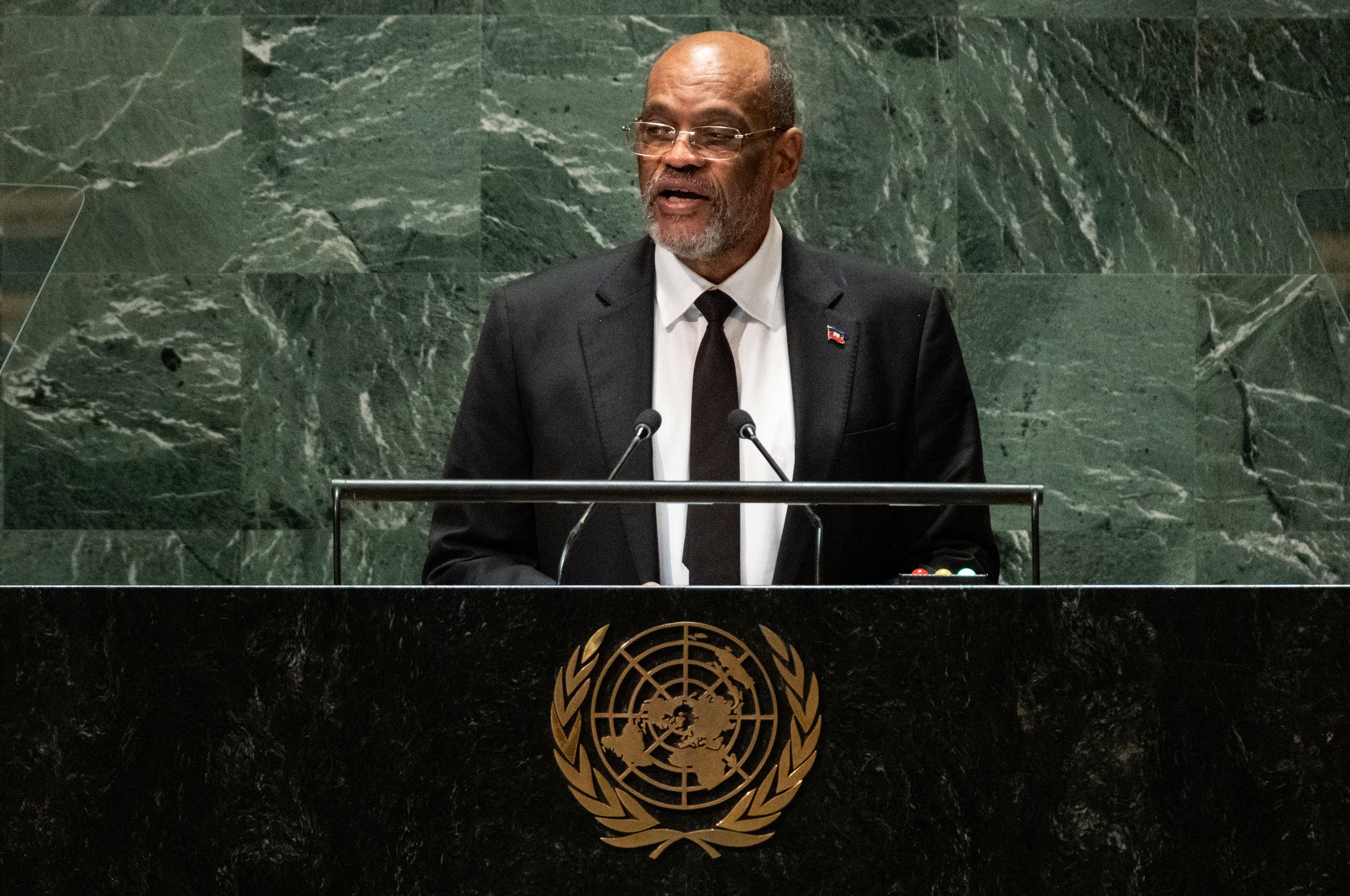Gunfire paralyzes Haiti as powerful gang leader says he will try to detain police chief, ministers
Heavy gunfire has paralyzed Haiti’s capital as a powerful gang leader announced he will try to capture the country’s police chief and government ministers

Heavy gunfire paralyzed Haiti’s capital Thursday as a powerful gang leader announced that he will try to capture the country’s police chief and government ministers.
The move came during the absence of Prime Minister Ariel Henry, who is in Kenya trying to finalize details for the deployment of a foreign armed force to Haiti to help combat gangs.
Gunmen shot at Haiti’s main international airport and other targets in a wave of violence that caught many people by surprise, forcing businesses, government agencies and schools to close early as parents and young children fled through the streets in panic. At least one airline, Sunrise Airways, suspended all flights.
Jimmy Chérizier, known as “Barbecue” and leader of the gang federation G9 Family and Allies, was seen in a recorded video announcing that the aim was to tie up the police chief and government ministers and prevent Henry from returning to Haiti.
“With our guns and with the Haitian people, we will free the country,” he said.
A spokesman for the prime minister’s office could not be immediately reached for comment. The head of Haiti’s National Police, Frantz Elbé, and police spokesman Garry Desrosiers did not return messages for comment.
It was not clear if Chérizier had the backing of other major gangs that are estimated to control up to 80% of Haiti's capital, Port-au-Prince.
Diego Da Rin, with the International Crisis Group, noted that Barbecue in his speech referred to a coalition called Viv Ansanm, which means “living together” in Haitian Creole. The coalition was created last year as part of a peace pact between Barbecue’s federation and another powerful gang called G-Pep and had as a main goal to bring down Henry’s administration.
However, the coalition crumbled just days after it was announced, and Da Rin said it remains to be seen whether Barbecue truly has the support of other gang leaders.
“I don’t know how much credibility to give Barbecue right now,” Da Rin said. “Rivalries between gangs are so strong and alliances ever shifting that it’s complicated they could act in a concerted manner for a long time without much trouble.”
However, he noted that gunmen launched coordinated attacks in Port-au-Prince and elsewhere in Haiti on Thursday. In addition to the attack on the main international airport, gunmen also set fire to a police station in downtown Port-au-Prince.
The attacks came a day after Henry met in Guyana with Caribbean leaders, who said he pledged to hold long-awaited general elections by mid-2025. It is the third time he has announced such a deadline, with previous promises made in 2022 and 2023. There are currently no elected officials in Haiti, with Henry sworn in as prime minister with the backing of the international community shortly after the July 2021 assassination of President Jovenel Moïse.
Henry went from Guyana to Kenya in hopes of moving forward on the deployment of Kenyan police officers to Haiti. A court in the East African nation ruled last month that the proposed deployment was unconstitutional, but Henry and Kenyan officials have been working on a deal that would allow forces to arrive in Haiti soon.
“There has always been the danger that as discussions progress and the goal of the mission gets closer that the gangs will try to flex their muscles and discourage the troops,” Da Rin said.
The government of Haiti said in a statement that Henry arrived in Kenya on Thursday. They did not say when he would return to Haiti.
___
Coto reported from San Juan, Puerto Rico.
Bookmark popover
Removed from bookmarks